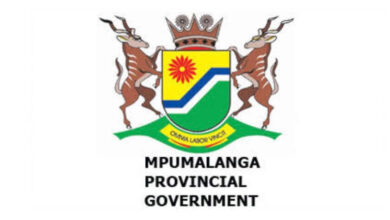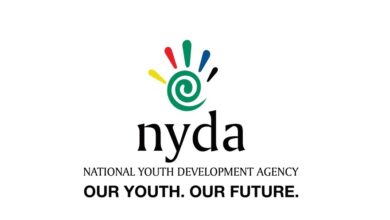20 Signs You Have a Gambling Problem

Gambling can be an exciting and sometimes rewarding activity, but for some, it can spiral into a dangerous habit. Recognizing the signs of a gambling problem is crucial for preventing serious consequences such as financial ruin, strained relationships, and mental health issues. Here are 20 signs that you may have a gambling problem, along with descriptions, scenarios, reasons why each is a red flag, and advice on how to navigate it.
1. Chasing Losses
The compulsion to keep gambling to win back money lost in previous bets.
Scenario: You lose a significant amount of money and immediately feel the need to continue gambling to recover the losses.
Why It’s a Red Flag: Chasing losses can lead to even greater financial problems and a deeper cycle of gambling.
How to Navigate It: Acknowledge that losses are part of gambling and set strict limits on your spending. Seek support from a trusted friend or professional if you struggle to stop.
2. Gambling in Secret
Hiding your gambling activities from family and friends.
Scenario: You go to casinos or online gambling sites without telling anyone, or you lie about where you are and what you’re doing.
Why It’s a Red Flag: Secrecy often indicates that you’re aware of a problem but are unwilling to face it, which can lead to further isolation and addiction.
How to Navigate It: Be honest with yourself and those close to you. Discuss your gambling openly and seek help to address the underlying issues.
3. Betting Beyond Your Means
Gambling more money than you can afford to lose.
Scenario: You use money meant for bills, rent, or other essential expenses to place bets.
Why It’s a Red Flag: This behavior can lead to severe financial problems and create stress in other areas of life.
How to Navigate It: Establish a budget and stick to it. If you find yourself gambling with essential funds, seek financial counseling and consider self-exclusion from gambling venues or websites.
4. Neglecting Responsibilities
Ignoring work, school, or home duties to gamble.
Scenario: Missing work deadlines, skipping classes, or neglecting household chores because you’re focused on gambling.
Why It’s a Red Flag: Gambling is taking priority over important aspects of your life, which can have long-term negative consequences.
How to Navigate It: Prioritize your responsibilities and limit gambling to leisure time. If gambling continues to interfere, seek support to manage your time better.
5. Mood Swings Related to Gambling
Experiencing intense emotional highs and lows based on gambling outcomes.
Scenario: Feeling elated after a win but deeply depressed or irritable after a loss.
Why It’s a Red Flag: Mood swings can indicate an unhealthy emotional dependency on gambling.
How to Navigate It: Recognize the emotional impact of gambling and seek healthier ways to manage your emotions. Consider speaking to a therapist if mood swings persist.
6. Borrowing Money to Gamble
Taking loans or asking friends and family for money to continue gambling.
Scenario: You borrow money to place bets or cover gambling losses, often without intending to pay it back.
Why It’s a Red Flag: Borrowing money can lead to debt and damage relationships with friends and family.
How to Navigate It: Avoid borrowing money for gambling and seek financial advice. Discuss your situation with a trusted friend or counselor.
7. Constantly Thinking About Gambling
Frequently thinking about past gambling experiences or planning future gambling activities.
Scenario: You find yourself daydreaming about past wins or strategizing your next bets even when you’re not gambling.
Why It’s a Red Flag: An obsession with gambling can indicate that it’s taking up too much mental space and affecting other areas of your life.
How to Navigate It: Focus on other interests and activities. If obsessive thoughts about gambling persist, consider therapy to explore the underlying causes.
8. Feeling Guilty or Ashamed About Gambling
Experiencing guilt or shame about your gambling behavior.
Scenario: You feel embarrassed or regretful after a gambling session, especially if you’ve lost more money than intended.
Why It’s a Red Flag: These feelings suggest that you’re aware of the negative impact of gambling but feel unable to control it.
How to Navigate It: Acknowledge these feelings and seek support to understand and address them. Talking to a counselor can help you work through the emotions.
9. Lying About Gambling
Being dishonest about how much time or money you spend on gambling.
Scenario: You downplay your gambling habits when asked by friends or family, or you lie about the extent of your losses.
Why It’s a Red Flag: Lying indicates that you’re aware of a problem and are trying to hide it, which can lead to further issues.
How to Navigate It: Be honest with yourself and others. Transparency is crucial for addressing and managing gambling issues.
10. Gambling as an Escape
Using gambling as a way to escape from problems or unpleasant feelings.
Scenario: You turn to gambling to avoid dealing with stress, anxiety, or other personal issues.
Why It’s a Red Flag: Using gambling as an escape can lead to dependency and worsen existing problems.
How to Navigate It: Identify healthier coping mechanisms, such as exercise, hobbies, or talking to a friend. Consider professional help to address the underlying issues.
11. Neglecting Personal Health
Ignoring your physical and mental health due to gambling.
Scenario: Skipping meals, losing sleep, or neglecting exercise because you’re focused on gambling.
Why It’s a Red Flag: Prioritizing gambling over your health can lead to serious physical and mental health problems.
How to Navigate It: Establish a self-care routine and set limits on gambling. Seek support to develop healthier habits.
12. Increasing Bets Over Time
Gradually placing larger bets to achieve the same level of excitement.
Scenario: Starting with small bets but feeling the need to wager more significant amounts over time.
Why It’s a Red Flag: Increasing bets can indicate a growing tolerance and a potential addiction.
How to Navigate It: Set strict limits on your bets and stick to them. If you struggle to control your betting, seek help.
13. Feeling a Lack of Control
Inability to stop or limit gambling, even if you want to.
Scenario: Telling yourself you’ll stop after a certain amount but continuing to gamble anyway.
Why It’s a Red Flag: A lack of control indicates a possible addiction, making it challenging to stop without help.
How to Navigate It: Recognize the need for help and consider joining a support group or speaking to a counselor.
14. Isolating from Friends and Family
Withdrawing from social activities and relationships due to gambling.
Scenario: Spending less time with loved ones because you’re focused on gambling.
Why It’s a Red Flag: Isolation can worsen the problem and lead to further dependency on gambling.
How to Navigate It: Reconnect with friends and family. Discuss your gambling habits openly and seek their support.
15. Gambling to Relieve Boredom
Gambling as a primary way to pass the time or alleviate boredom.
Scenario: Turning to gambling whenever you feel bored, with few other interests or hobbies.
Why It’s a Red Flag: Relying on gambling for entertainment can lead to addiction and neglect of other activities.
How to Navigate It: Find new hobbies and interests to diversify your activities. Limit gambling to specific occasions.
16. Feeling Anxious or Stressed About Gambling
Experiencing anxiety or stress related to gambling activities or outcomes.
Scenario: Feeling anxious about losing money or stressed about hiding gambling from others.
Why It’s a Red Flag: Anxiety and stress can indicate that gambling is negatively affecting your mental health.
How to Navigate It: Identify the sources of stress and address them. Seek support from friends, family, or a counselor.
17. Financial Troubles Due to Gambling
Experiencing financial difficulties as a result of gambling losses.
Scenario: Struggling to pay bills, racking up debt, or selling possessions to fund gambling.
Why It’s a Red Flag: Financial troubles can lead to a cascade of other issues, including legal problems and relationship strain.
How to Navigate It: Create a budget and avoid using essential funds for gambling. Seek financial counseling if needed.
18. Feeling Depressed After Gambling
Experiencing feelings of sadness or depression after gambling sessions.
Scenario: Feeling down or hopeless after a losing streak or after realizing the amount of money lost.
Why It’s a Red Flag: Depression after gambling can indicate a negative impact on your mental health and well-being.
How to Navigate It: Seek professional help to address depression and consider reducing or stopping gambling.
19. Using Gambling as a Social Outlet
Relying on gambling as your primary way to socialize.
Scenario: Only hanging out with friends who gamble or only meeting new people through gambling activities.
Why It’s a Red Flag: Using gambling as a primary social outlet can limit your social interactions and relationships.
How to Navigate It: Diversify your social activities and engage in non-gambling-related social events. Build relationships outside of gambling contexts.
20. Denial About Gambling Issues
Refusing to acknowledge the impact or existence of a gambling problem.
Scenario: Dismissing concerns from others or minimizing the consequences of your gambling behavior.
Why It’s a Red Flag: Denial prevents you from addressing the problem, leading to a potential escalation of issues. It can also strain relationships as loved ones feel unheard or disregarded.
How to Navigate It: Acknowledge the concerns of those around you and reflect honestly on your gambling habits. Consider seeking an unbiased perspective from a professional counselor or support group.
Recognizing the signs of a gambling problem is the first step toward recovery. If you notice any of these red flags in your own life, it’s essential to take action. Reach out to friends, family, or professionals who can offer support and guidance. Remember, acknowledging the problem is not a sign of weakness but a courageous step towards a healthier, more balanced life. Taking proactive measures can help you regain control and prevent gambling from negatively impacting your future.
The South African Responsible Gambling Foundation (SARGF) provides Free and Confidential Treatment and Counselling to those affected by Problem Gambling and their immediate family members. Call toll FREE counselling line, 0800 006 008 Or WhatsApp/SMS HELP To 076 675 0710 or email to helpline@responsiblegambling.org.za or call our International Number: +27 21 674 5830




